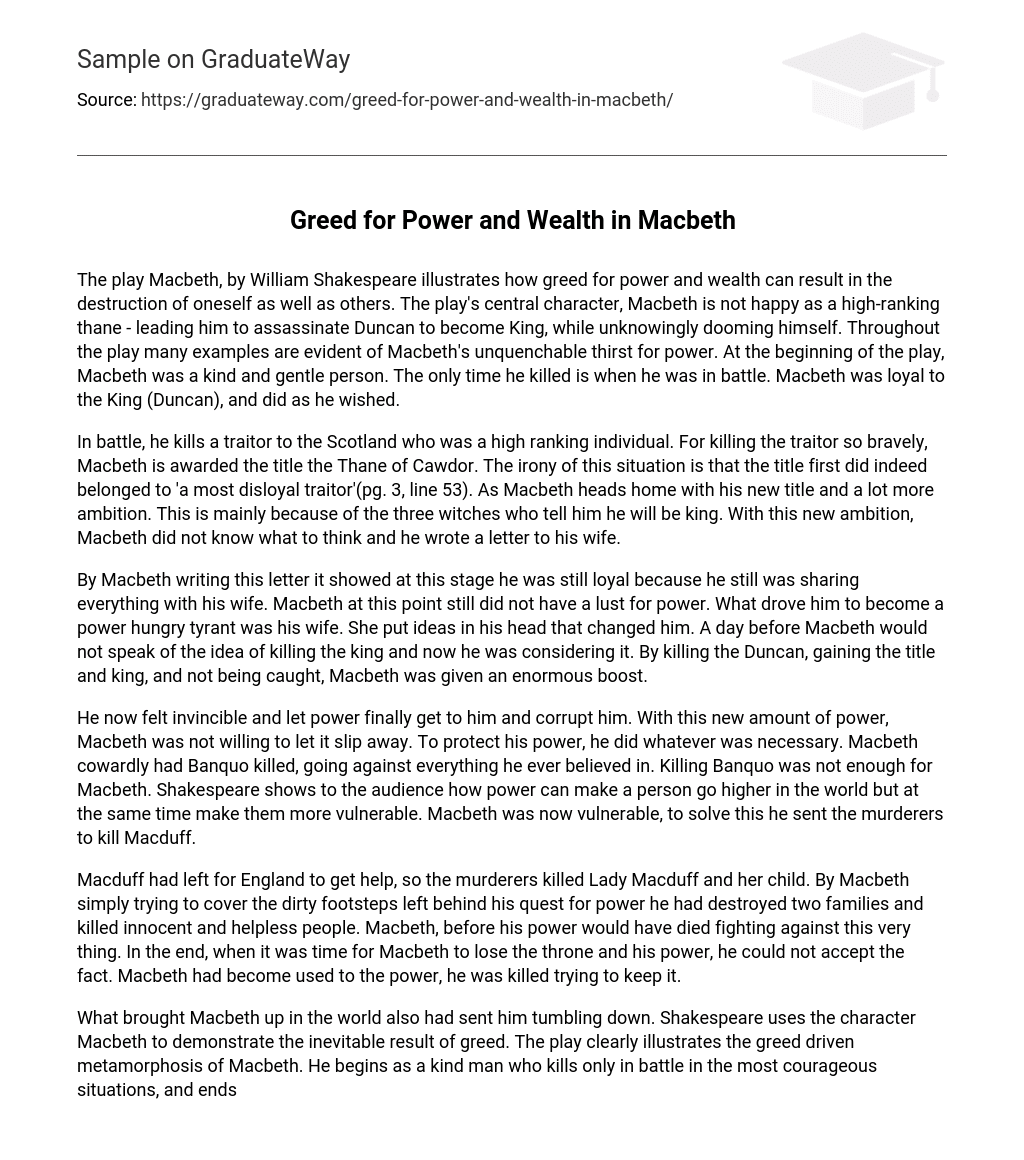The play Macbeth, by William Shakespeare illustrates how greed for power and wealth can result in the destruction of oneself as well as others. The play’s central character, Macbeth is not happy as a high-ranking thane – leading him to assassinate Duncan to become King, while unknowingly dooming himself. Throughout the play many examples are evident of Macbeth’s unquenchable thirst for power. At the beginning of the play, Macbeth was a kind and gentle person. The only time he killed is when he was in battle. Macbeth was loyal to the King (Duncan), and did as he wished.
In battle, he kills a traitor to the Scotland who was a high ranking individual. For killing the traitor so bravely, Macbeth is awarded the title the Thane of Cawdor. The irony of this situation is that the title first did indeed belonged to ‘a most disloyal traitor'(pg. 3, line 53). As Macbeth heads home with his new title and a lot more ambition. This is mainly because of the three witches who tell him he will be king. With this new ambition, Macbeth did not know what to think and he wrote a letter to his wife.
By Macbeth writing this letter it showed at this stage he was still loyal because he still was sharing everything with his wife. Macbeth at this point still did not have a lust for power. What drove him to become a power hungry tyrant was his wife. She put ideas in his head that changed him. A day before Macbeth would not speak of the idea of killing the king and now he was considering it. By killing the Duncan, gaining the title and king, and not being caught, Macbeth was given an enormous boost.
He now felt invincible and let power finally get to him and corrupt him. With this new amount of power, Macbeth was not willing to let it slip away. To protect his power, he did whatever was necessary. Macbeth cowardly had Banquo killed, going against everything he ever believed in. Killing Banquo was not enough for Macbeth. Shakespeare shows to the audience how power can make a person go higher in the world but at the same time make them more vulnerable. Macbeth was now vulnerable, to solve this he sent the murderers to kill Macduff.
Macduff had left for England to get help, so the murderers killed Lady Macduff and her child. By Macbeth simply trying to cover the dirty footsteps left behind his quest for power he had destroyed two families and killed innocent and helpless people. Macbeth, before his power would have died fighting against this very thing. In the end, when it was time for Macbeth to lose the throne and his power, he could not accept the fact. Macbeth had become used to the power, he was killed trying to keep it.
What brought Macbeth up in the world also had sent him tumbling down. Shakespeare uses the character Macbeth to demonstrate the inevitable result of greed. The play clearly illustrates the greed driven metamorphosis of Macbeth. He begins as a kind man who kills only in battle in the most courageous situations, and ends as a fearful man who attacks the defenseless and pays professional murderers to kill for him. Macbeth vividly depicts a life foolishly lived, as Macbeth dooms himself while pursuing a hollow goal.





